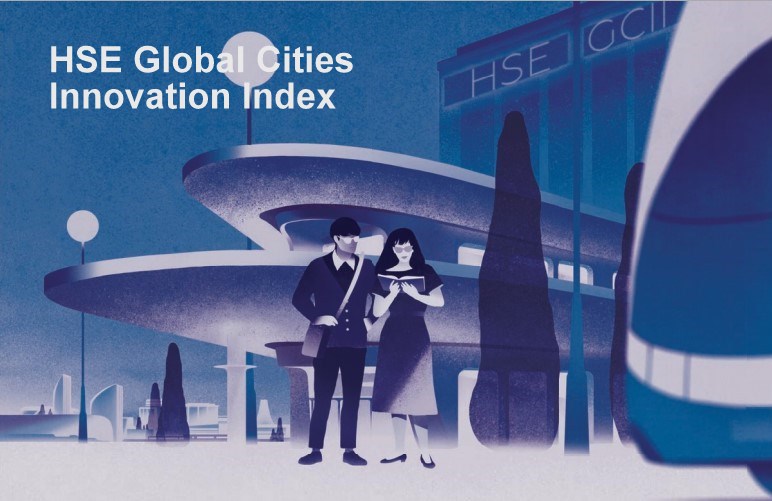
Top 20 Frontiers of Russian Science: 2024
In the framework of world science structure mapping the HSE University Institute for Statistical Studies and Economics of Knowledge (ISSEK) for the first time has identified the most relevant for Russia research and development topics using a system of intelligent analysis of big data iFORA.

‘Cooperation with R&D Organisations and Universities Is Significantly Distinctive for Advanced Innovators’
The innovation performance of firms depends on their ability to innovate in cooperation with external partners. In their study, HSE researchers found that most of innovation in Russian manufacturing happens in a sort of open processes, but extensive cooperation networks are barely detectable. The study was published in the December issue of Foresight and STI Governance.

HSE University Presents First Global Cities Innovation Index
According to HSE University’s Global Cities Innovation Index, New York and London are the world’s most attractive megacities to innovators implementing creative and technological initiatives. Moscow ranked among the rating’s top ten cities, leading in the areas of ‘Innovation Infrastructure’ and ‘Digital Infrastructure and Services’. HSE researchers presented the index at this year’s Open Innovations Forum.
Leonid Gokhberg: ‘Almost Every Fifth High-Tech Russian Company Uses Additive Technologies’
Additive technologies including 3D-printing are growing faster than 75% of other relevant digital technology areas, noted Leonid Gokhberg, HSE First Vice-Rector and ISSEK Director, at the forum ‘Additive Technologies, Growing Horizons’ hosted by the Skolkovo Institute of Science and Technology (Skoltech) on 3 December 2019.
The Results of a Study of Russian Entrepreneurs’ Digital Activity Were Discussed at a Joint EC/OECD Workshop
Experts from the ISSEK Centre for Business Tendencies Studies (CBTS) presented the results of a pilot project to measure digital activity of Russian industrial and retail companies at the 9th Joint EC/OECD Workshop (14-15 November 2019, Paris, France).
Digital Activity of Russian Manufacturing Companies in 2018
The HSE Institute for Statistical Studies and Economics of Knowledge continues to study business digitisation trends, and presents the results of a market survey reflecting the level of digital technologies’ application by Russian large and medium manufacturing enterprises in 2018. Managers of more than 1,200 companies in 30 Russian regions participated in the survey.
Creating 'Users' and Studying 'Non-users' of Technologies
The social sciences and the humanities are beginning to play an increasing role in technology and innovation studies: it becomes obvious that the long-term social effects of scientific and technological development are important side of it. Similar studies are gaining momentum in Russia. For instance, HSE ISSEK has been measuring public perception of science, technology and innovation indicators in the framework of 'Monitoring the Innovative Behaviour of the Population' for more than 10 years. It latest results were presented by Alena Nefedova at the International scientific-practical conference 'Russian User Studies' (November 29 – December 1, 2018, St. Petersburg).
Knowledge of Foreign Languages by Russian Scientists
The HSE Institute for Statistical Studies and Economics of Knowledge conducted a survey of more than 2 thousand Russian doctorate holders, in order to assess the situation with foreign language skills among highly qualified scientific personnel.
10 Facts about Russian Teachers
Here are a few facts and figures about activities of the most important in the knowledge-based economy professionals.
The Attractiveness of Academic Career in Russia
The new issue of the HSE ISSEK newsletter 'Science, Technology and Innovation' presents statistics on the growth of the number of researchers in Russia, the share of graduates hired by R&D organisations, and the growth of R&D personnel’s average monthly salaries during the previous 15 years.
